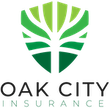Managing property can be a nuanced process, especially when it comes to safeguarding your investment. As a property owner or someone considering entering the real estate market, it is crucial to understand the distinct insurance needs for different types of property usage. This guide will walk you through the key disparities between two fundamental types of insurance – landlord insurance and home insurance – providing you with the knowledge to make an informed decision.
Introduction to Property Insurance
Insurance is a financial tool designed to provide peace of mind and protection from various risks. For homeowners who reside in their property and landlords who lease out their property, the right type of insurance is essential. It not only guards your asset against unforeseen events but also provides financial protection if you are held liable for injuries or damages.
Understanding what each type of insurance covers is the first step in ensuring your real estate endeavors are protected properly. In this educational guide, we delve into the intricate details of home and landlord insurance, focusing on the distinctions that could affect your decision-making process.
What is Home Insurance?
Home insurance, also known as homeowner’s insurance, is designed to protect residential property owners from a wide range of perils. It typically covers the structure of your home, liability for accidents that might occur on your property, personal belongings, and additional living expenses (ALE) in case of temporary displacement.
Home insurance is usually a requirement by mortgage lenders, as it not only protects the investment of the property but also ensures payment to the lender in the event of catastrophic damage.
What is Landlord Insurance?
Landlord insurance, or rental property insurance, is a specific policy for owners who rent out their properties. It offers protection for properties leased to tenants against damages and financial losses related to rental activities.
Unlike home insurance, landlord insurance contains provisions tailored to the unique exposures that rental properties face, such as lost rental income and legal liability towards tenants. This type of insurance is not mandatory by law but is highly recommended for any property owner who leases their property.
Key Differences
Understanding the nuances of each insurance policy is critical for ensuring your assets are adequately covered.
Coverage for Property Structure
Home insurance typically covers the dwelling structure from risks of fire, lightning, wind, hail, explosions, and more. It includes the cost of repairing or rebuilding the home up to the limits of the policy in case of damage or destruction.
Landlord insurance also protects the physical structure of the rental property, but it focuses on perils related to tenant-occupied buildings. It may not include certain protections offered by home insurance, as the liability risks and the income stream from rent are quite different.
Liability Coverage
Both insurance types include liability coverage, which protects you against claims that you are legally responsible for injuries or damages to others. In the context of home insurance, this covers incidents that might occur on your property, including accidents involving both invitees and trespassers.
For landlord insurance, this component is more specialized. It extends to protection against tenant inquiries such as bodily injury, premises liability, and libel or slander related to your role as a landlord. It’s also designed to cover tenant discrimination, wrongful eviction, and related legal expenses.
Loss of Rental Income Coverage
In the event your property becomes uninhabitable due to a covered peril, home insurance usually provides additional living expenses to cover the cost of alternative housing. However, it does not typically offer reimbursements for lost rental income.
Landlord insurance offers lost rental income coverage, helping to bridge the financial gap if your property is not generating rental revenue due to repairs or other covered situations that render it unlivable.
Personal Property Coverage
Home insurance often includes personal property coverage, which protects your belongings in case of damage or theft. It provides reimbursement for the actual cash value or the replacement cost of damaged or stolen property, up to the policy’s limits.
Landlord insurance, on the other hand, does not cover the personal property of tenants. It focuses on assets owned by the landlord and might include personal property for the owner used in the maintenance of the rental.
Choosing the Right Insurance
Selecting the correct insurance policy is a key part of your overall risk management strategy. Factors to consider include:
Rental Property Characteristics
An insurance policy should fit the specific characteristics of your rental property, including the number of units, location, age, and condition.
Tenancy Agreement
The terms of your lease agreement can impact the type of coverage you need. Short-term rentals, for example, might necessitate additional liability protection not typically found in standard home insurance.
Unique Risks
Every property comes with its own set of risks, but rental properties have additional exposures. Assess what kind of liability risks you might face as a landlord and ensure your insurance policy covers them appropriately.
Budget
Landlord insurance might be more expensive than standard home insurance due to the expanded coverage. Evaluate your budget and the cost of the insurance in relation to the risk.
Conclusion
The choice between home and landlord insurance is not one to be made lightly. Both serve distinct purposes and offer different coverages tailored to unique property situations. As property management professionals, we recognize the importance of risk assessment and insurance tailored to your specific needs.
To ensure you have the optimal protection for your property, we encourage you to get in touch with Oak City Insurance. As an independent insurance agency, we work with over 20 insurance carriers, allowing us to find you the best coverage at the most competitive rates.
Don’t leave your property’s future to chance. Let Oak City Insurance guide you in securing the right policy to protect your real estate investment. Contact us, and let’s start the conversation about safeguarding your assets today.

